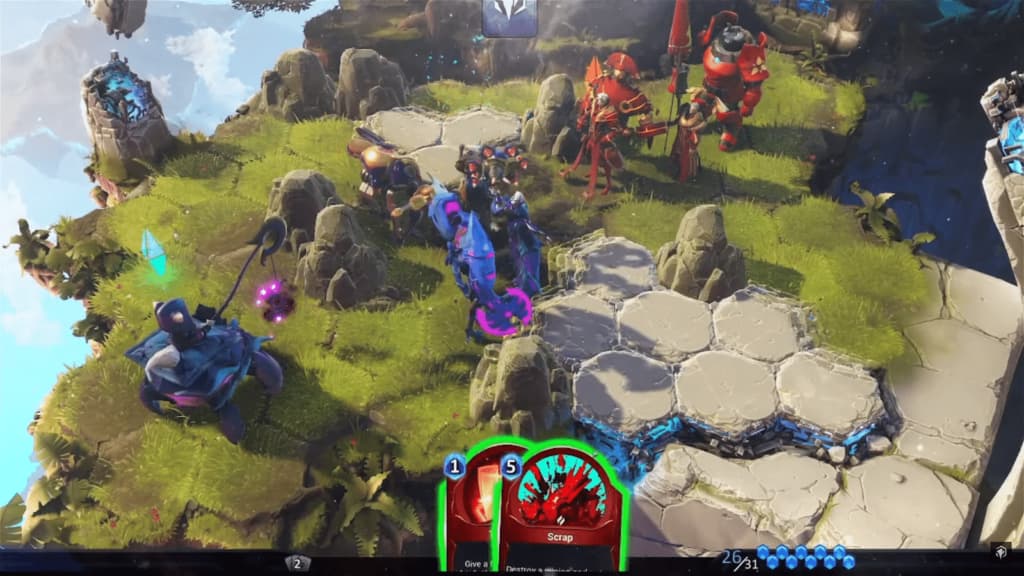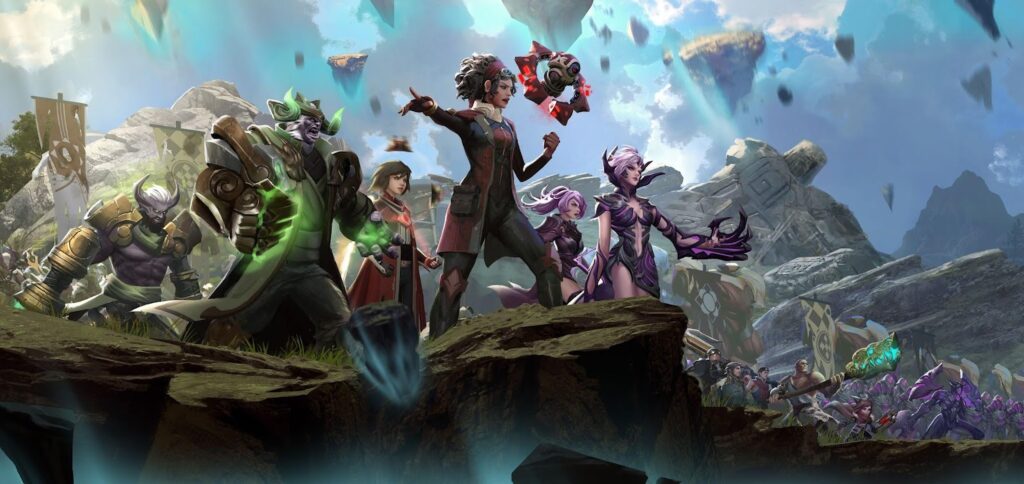It’s an exciting take on the traditional TCG formula, leveraging the power of blockchain technology to offer unique ownership and trading opportunities for players. Here’s a deeper dive into what makes it tick:
<iframe width=”560″ height=”315″ src=”https://www.youtube.com/embed/o-kK-XVIxgs?si=8P2gKQaibpydcZOD” title=”YouTube video player” frameborder=”0″ allow=”accelerometer; autoplay; clipboard-write; encrypted-media; gyroscope; picture-in-picture; web-share” allowfullscreen></iframe>
Core Gameplay

Identical to the original Shardbound:
- At its heart, the blockchain version stays true to the core gameplay of the Spiritwalk Games’ Shardbound. You’ll still collect cards representing units, spells, and items, build decks, and engage in strategic battles against other players online. The familiar grid-based battlefield and unit positioning mechanics are also present;
- NFT Ownership: The key difference lies in how you own and manage your cards. Each card in the blockchain version is an NFT, essentially a unique digital asset stored on the blockchain.
This grants you true ownership of your cards, allowing you to freely trade, sell, or even rent them to other players.
Key Features

The blockchain integration opens doors to potential “play-to-earn” mechanics:
By participating in the game’s economy, like winning battles or completing quests, you could earn rewards in the form of the game’s cryptocurrency or tokens, which can then be sold on cryptocurrency exchanges.
- Marketplace: A dedicated marketplace facilitates secure and transparent trading of NFT cards between players. This allows you to buy, sell, or auction your cards at market-determined prices, potentially generating real-world value from your in-game assets;
- Community Governance: Some blockchain TCGs incorporate community governance models, where players holding tokens can vote on game development decisions or propose changes to the game’s rules and mechanics.
This adds a layer of player agency and fosters a sense of community ownership.
Current Status
As of February 2024, the Immutable Games version of Shardbound is still in closed beta testing:
- This means access is limited to a select group of players who can provide feedback and help shape the game’s development;
- Future Release: The developers haven’t announced an official release date yet, but you can check their website or social media channels for updates and potential opportunities to join the closed beta.
Overall, the blockchain-based Shardbound presents an intriguing twist on the classic TCG formula. By incorporating NFTs and potentially play-to-earn mechanics, it opens up new avenues for player ownership, community engagement, and even potential financial gain. If you’re interested in exploring the intersection of gaming and blockchain technology, Shardbound is definitely worth keeping an eye on!
To Summarize
While the blockchain version of Shardbound is still in its early stages, it has the potential to disrupt the traditional TCG landscape. The exciting blend of familiar gameplay, NFT ownership, and community-driven features could attract both seasoned TCG players and those curious about blockchain gaming. If you’re looking for a strategic card game with innovative ownership mechanics and a chance to be part of a growing community, keep your eyes peeled for Shardbound’s official release. It might just be the next evolution of the TCG genre!